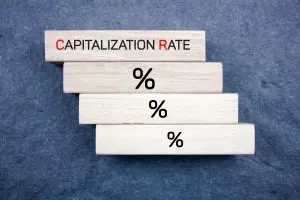Like any investment opportunity, investing in real estate is not without risk. There are hundreds of mistakes that can be made. Some issues will come up in a transaction that may be reasonably innocuous; however, they can be severe (and expensive to resolve). Fortunately, some steps can be taken to minimize the risk. Here are some areas that every investor should focus on before investing in real estate: Researching, Budgeting, Financing, Exit Strategy, and Seeking Advice. Remember, seeking advice from experienced professionals can provide valuable insights and guidance, making your investment journey smoother.

1. Research and Analysis
There are three sources of return when investing in real estate: 1) Cash Flow, 2) Appreciation, and 3) Tax benefit. The first step should be assembling a model to analyze the contribution of each of these items to the projected overall return on the asset. In past decades, that process has been highly time-consuming and expensive. That is not the case today. It is no longer necessary (or recommended) to shorten the analysis by relying on “rules of thumb” or industry averages. A model for analyzing any investment is available at the Terra Real Estate Learning Center. With few exceptions, information on your local market is freely available over the internet, and a complete analysis can be quickly completed, including a tax analysis.
Including an initial tax analysis without relying upon expensive tax professionals is possible. If the numbers indicate that the investment may be worthwhile, the professional can be retained.
Take steps now to learn how successful real estate investors accurately complete a real estate investment analysis without spending a fortune. The potential for learning and growth in this field is immense, and by taking the proper steps, you can become a successful investor.
2. Renovation
One strategy that successful investors often use to add value to their properties is renovation. However, this is also an area where many investors stumble. While we may be familiar with making trips to Home Depot for home repairs, renovating for a successful investment is a more complex process than it may seem. It’s essential to be aware of the potential challenges and avoid common mistakes.
Developing a budget for the renovation should start with the Analysis. Your analysis will give you an accurate idea of the After Repair (renovation) Value (ARV). The next step will be to develop an estimate of the necessary work to achieve that value.
The renovation estimate must be accurate. During the early phase of the escrow, all areas needing repair must be identified and accurately priced. I have worked with many investors who failed to identify problems such as mold and incurred substantial unbudgeted remediation costs. There have also been times when an investor’s physical inspection did not detect cracks in the foundation. Those types of mistakes are potentially disastrous.
Always use a professional physical inspector during your due diligence period. Once the report is complete, seek a contractor that can give you an accurate estimate of the cost of repairs. Many investors have been able to assemble a team that can accurately estimate the cost of the job and complete the job quickly. For the new investor, estimating the cost yourself is not a good idea. Call a reliable contractor.
Many of the biggest problems were made by investors in foreclosures. In most instances, investors will not have the opportunity to inspect the property before closing escrow. As discussed in my course Real Estate Investing for Everyone, investing in foreclosures should be done only by investors who know the pitfalls.
3. Financing
In one of my Terra Real Estate Learning Center courses, I explore financing through various sources (Private, Traditional, Convention, JV, etc.). Suffice it to say that there are loans to fit your goals.
If your goal is a medium-term hold, you may want to consider a ten-year, interest-only loan. If you are considering investing in a property that will need significant renovation, your choices of lenders will be limited. You may want a short-term loan from a hard money lender (private lender). Depending on your credit background, a conventional lender may be willing to make a construction loan followed by a take-out loan once the property has been renovated.
Your access to the monies might depend on your equity in your residence or other investments. Loans on investment property involve higher interest rates and lower loan-to-value (LTV). In a recent transaction, the maximum LTV was 50%. It is always recommended that investors work with an experienced loan broker.
4. Exit Strategy
Before investing, consider an exit strategy. That strategy will help guide your financing, renovation, and tax strategies.
A real estate exit strategy will help ensure your decisions are consistent with your goals. Are you dealing with a BRRR, a long-term hold, or will you consider 1031 exchanges? Are you making your first investment and need to find an investment that will be easy to sell…just in case things don’t work out? The point is that it’s essential to have a plan in place and make consistent decisions that support your strategy.
The best strategies will be flexible and prepare the investor for unforeseen events. One of my own goals is to avoid surprises. Make a plan and follow it.
Sources for Help
Novice and experienced investors will, at times, need help. Fortunately, there are many online sources for help. For instance, it may be worthwhile to investigate seeking online help from sources such as:
A. Investor groups on Facebook. Most of the problems that investors encounter are not unique. Hundreds of investors have no doubt the same questions, have found a solution, and are willing to share their experiences.
B. It is always worthwhile toworkp with a real estate agent or loan broker who either has an answer to your question or can refer you to an expert in the field. Real estate agents are excellent sources of information about their local market.
C. It is highly recommended that you attend real estate seminars (online or in-person). It will be worthwhile if you can take away one good idea or knowledge on a particular subject. If you are lucky, they might offer a free lunch.
If a more serious problem is encountered, it is time to seek professional help. The best advice will come from an active investor. They have contacts such as attorneys, tax professionals, and mortgage brokers. It pays to be an active member of your local investor community. Check around.
If you want to expand your real estate analysis knowledge and expertise, please check out our courses at Terra Real Estate Learning Center. We offer classes covering real estate investment analysis, finding tenants for your investment, math refresher for investors, and more. A forum will be added to share ideas and leads in the future.
Author: Larry E Nease, Terra Conejo Properties, Inc.






